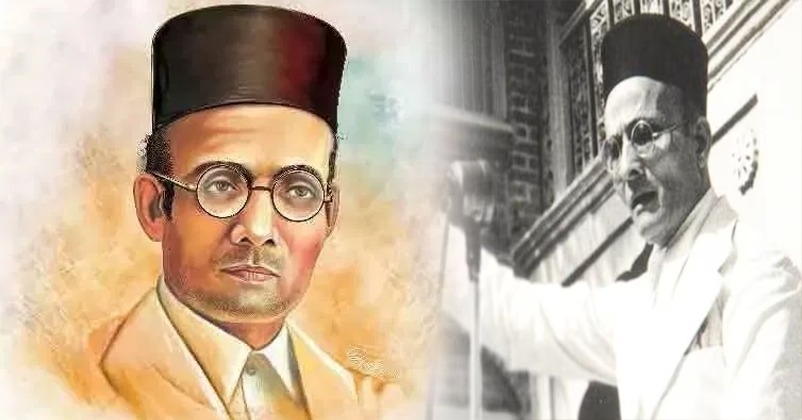28 May, 1883: Veer Savarkar’s Birth Anniversary – A Salute to the Fearless Son of Bharat Mata
Total Views |

Today marks the birth anniversary of Vinayak Damodar Savarkar, popularly known as Veer Savarkar—one of India’s bravest freedom fighters, thinker, and a true son of Bharat Mata. Born on 28th May 1883 in Nashik, Maharashtra, Savarkar lived a life full of courage, sacrifice, and deep love for his country.
A Fearless Voice Against the British
From a young age, Savarkar was filled with the spirit of revolution. He believed that freedom must be fought for, not begged for. He joined and led several revolutionary groups that planned to fight the British with arms and courage. He was among the first Indians to clearly demand complete independence from British rule.
Called 1857 a War for Freedom
When the British called the 1857 revolt a “mutiny,” Savarkar boldly wrote a book calling it the “First War of Indian Independence.” This changed how many Indians viewed their history and inspired countless freedom fighters. The British were so afraid of this book that they banned it immediately.
A Pen That Woke the Nation
Savarkar was not just a fighter with weapons; he was a warrior with words. He was a great writer and poet. His writings, especially his book on the 1857 uprising and his work on Hindutva, stirred patriotic feelings in Indians across the country. His famous book, “Hindutva: Who is a Hindu?”, talked about India’s cultural roots and national identity.
A Life of Sacrifice – Kaala Pani Jail
For his revolutionary activities, Savarkar was arrested by the British and sent to the Cellular Jail in Andaman and Nicobar Islands in 1911—a dark and harsh prison also known as Kaala Pani. There, he faced unimaginable torture and loneliness, but he never gave up. Even in jail, he wrote poems and inspired others with his unbreakable spirit. It was one of the most brutal prisons, meant to break the spirit of freedom fighters through isolation, torture, and hard labor.
After spending over 10 years in Kaala Pani, he was shifted to prisons in mainland India. The British finally released him in 1924, but only under strict conditions. He was barred from political activities and kept under house arrest in Ratnagiri, Maharashtra, for 13 more years. Even then, he continued working for social reforms and national unity.
Even after India got freedom in 1947, Savarkar continued to work for the country. He led the Hindu Mahasabha and spoke about building a strong and united India based on its culture, pride, and values. He remained an active voice until his last breath in 1966.

